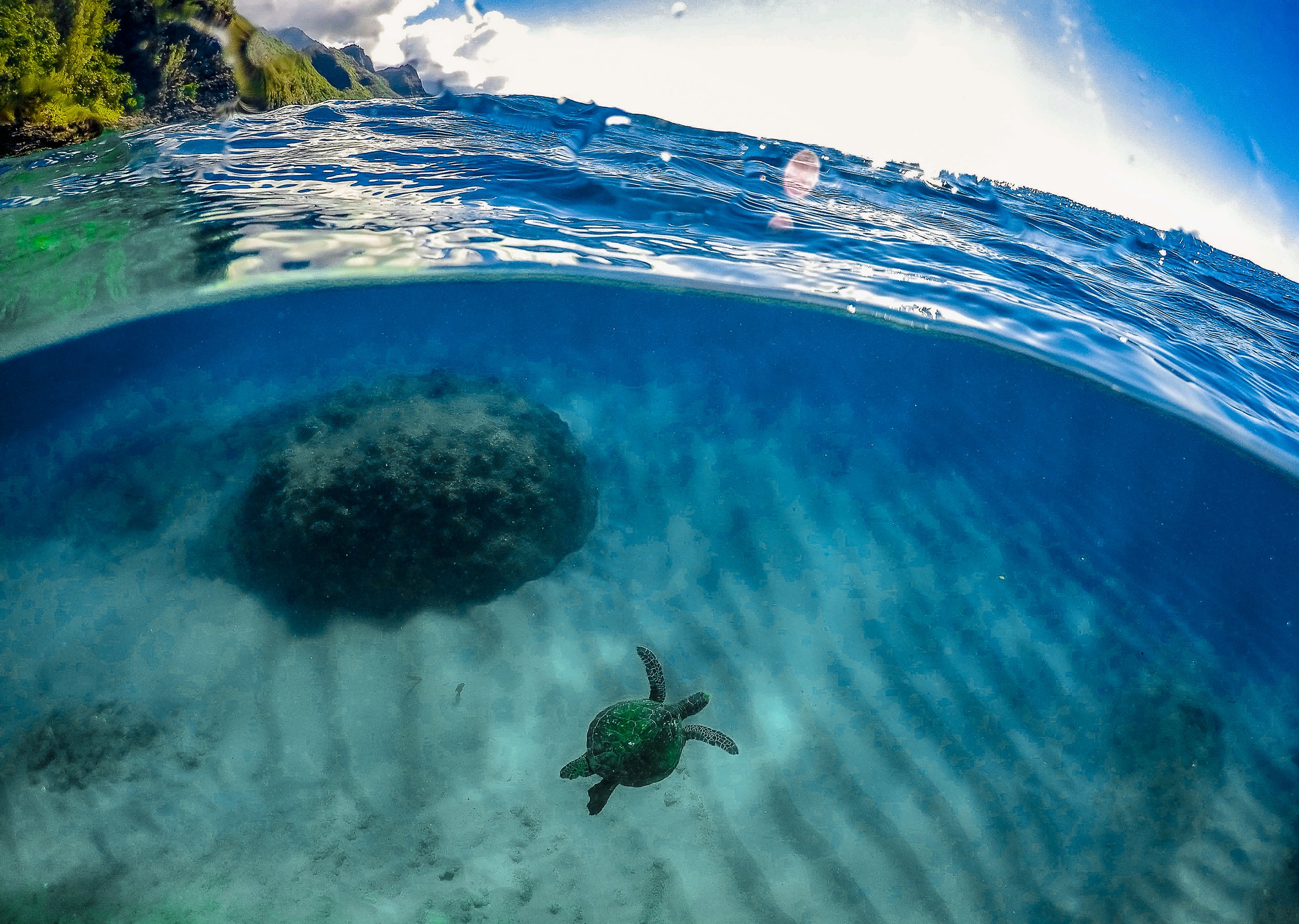Working for the Water: Careers That Keep You Close to the Ocean
by Vanessa Holwell
You can blame a childhood snorkeling trip, a long-lost Jacques Cousteau documentary, or the sheer mystery of the tide. Something lured you in, and now, here you are — still hungry, still wide-eyed, still imagining a life near the sea. That pull is more than a feeling, it’s a compass, and the good news is, you don’t have to be a biologist in a white lab coat to follow it. The world of marine careers is as deep and varied as the ocean itself. Whether you're drawn to data, diving, or storytelling, there's a way to turn your saltwater obsession into a life’s work. Here are seven vibrant career paths that let you make waves — no wetsuit required.
The Scientists of the Sea
Not all marine biologists are dolphin-whisperers or coral-huggers. Some spend months peering into microscopes, mapping fish DNA, or crunching climate data that predicts bleaching events. Others strap on scuba tanks to monitor shark populations or collect seafloor samples by submarine. What ties them together is a relentless curiosity about how ocean systems tick. Jobs range wildly, from academic research to government policy advising. If you're looking to go this route, understanding the wide array of career options in marine science can help you zero in on your niche — and maybe even snag that NOAA badge.
Business Below Sea Level
You wouldn’t think “spreadsheets” when dreaming of dolphins, but business savvy is often the difference between dream and reality in marine careers. Think about it: someone has to run the dive shop, manage the nonprofit, or build that sustainable seafood brand from scratch. That’s where something like an online business degree comes in — giving ocean-minded professionals the flexibility and tools to balance passion with profitability. Entrepreneurship is huge in this space, and those with both saltwater in their veins and a sharp sense for finance or marketing often find themselves in leadership roles. If you want your marine dream to thrive long-term, don’t skimp on the business side of things.
Underwater With a Lens
There’s a certain type of person who sees a ripple and reaches for a camera. Underwater photographers and videographers are more than image-makers, they’re visual storytellers with lungs of steel and patience to match. You’re not just snapping clownfish for fun — you might be documenting a rare squid bloom or building a portfolio for climate advocacy. The path isn’t simple: you’ll need top-tier diving credentials, gear you trust with your life, and the essential skills for underwater photographers that blend artistry with survival instinct. The payoff? Front-row seats to Earth’s most alien world — and the chance to show it to people who’ll never see it themselves.
Adventure Meets Education: Ecotourism
Forget the booze cruises and dolphin petting. Real marine ecotourism is built around conservation and education, not exploitation. This career is for those who can teach and charm at once — guiding kayaking trips through mangrove forests, hosting sea turtle hatchling releases, or leading coral restoration dives. These roles often exist at the crux of science and storytelling, where every tide pool becomes a classroom. Whether you're working independently or through a tour outfit, the skills needed are real: risk management, biological literacy, and a calm head in rough water. If that blend of fieldwork and people skills excites you, you’ll find plenty of careers in ecotourism worth exploring.
Saving What’s Left
Marine conservation is gritty, urgent, and often underfunded — but it draws some of the fiercest minds in the ocean space. Whether you're tracking ghost nets, leading reef monitoring projects, or drafting regulations for marine protected areas, the common thread is impact. These aren't always high-paying jobs, but they're rich in purpose, and many professionals work across nonprofits, academia, and even corporate sustainability. A background in biology helps, sure, but so does community organizing and grant writing. There’s a growing demand for people who can blend field science with policy fluency, and understanding the education requirements for marine conservation is key to carving out your place.
Shaping the Laws of the Sea
Not everyone wants to be in the water. Some shape the future from behind a desk, drafting the rules that keep coastlines safe, fisheries sustainable, and pollution in check. Marine policy analysts work at the intersection of science and legislation, and they need to speak both languages fluently. This means translating the work of researchers into plain-English briefs for lawmakers or weighing in on international treaties. While a science background helps, many also pursue degrees in environmental law or public policy. If this sounds like your wavelength, the job of a marine policy analyst might offer the cerebral challenge you're after — with ripple effects that stretch far beyond any one shore.
Seafood, Rethought
People often forget that what ends up on our plates can shift entire ecosystems. That’s why more entrepreneurs are diving into sustainable seafood — not just selling fish, but reimagining how we harvest, process, and market it. From oyster farms that improve water quality to startups using AI to trace tuna supply chains, this is where ecology meets innovation. It’s not easy work, and those entering the space need to understand environmental science, food systems, and consumer behavior. If you're curious about what's working now, take a look at some of the most promising sustainable seafood choices gaining traction worldwide. You don’t have to be a fisherman to change the future of fish.
What binds all these paths isn’t a single skill or job title. It’s that deep, undeniable pull to be near the ocean, to work for it, with it, or because of it. You don’t need to be Jacques Cousteau or Sylvia Earle. You just need a sharp mind, a flexible plan, and a willingness to start small. The sea needs storytellers and number crunchers, lawyers and luggers, educators and entrepreneurs. Find your place, grab your fins — or your clipboard — and get to work. The tide’s not waiting.
Dive into the captivating world of Liquid Origins and explore the rich tapestry of Boston’s nature, art, and wildlife adventures that flow as freely as water itself.






